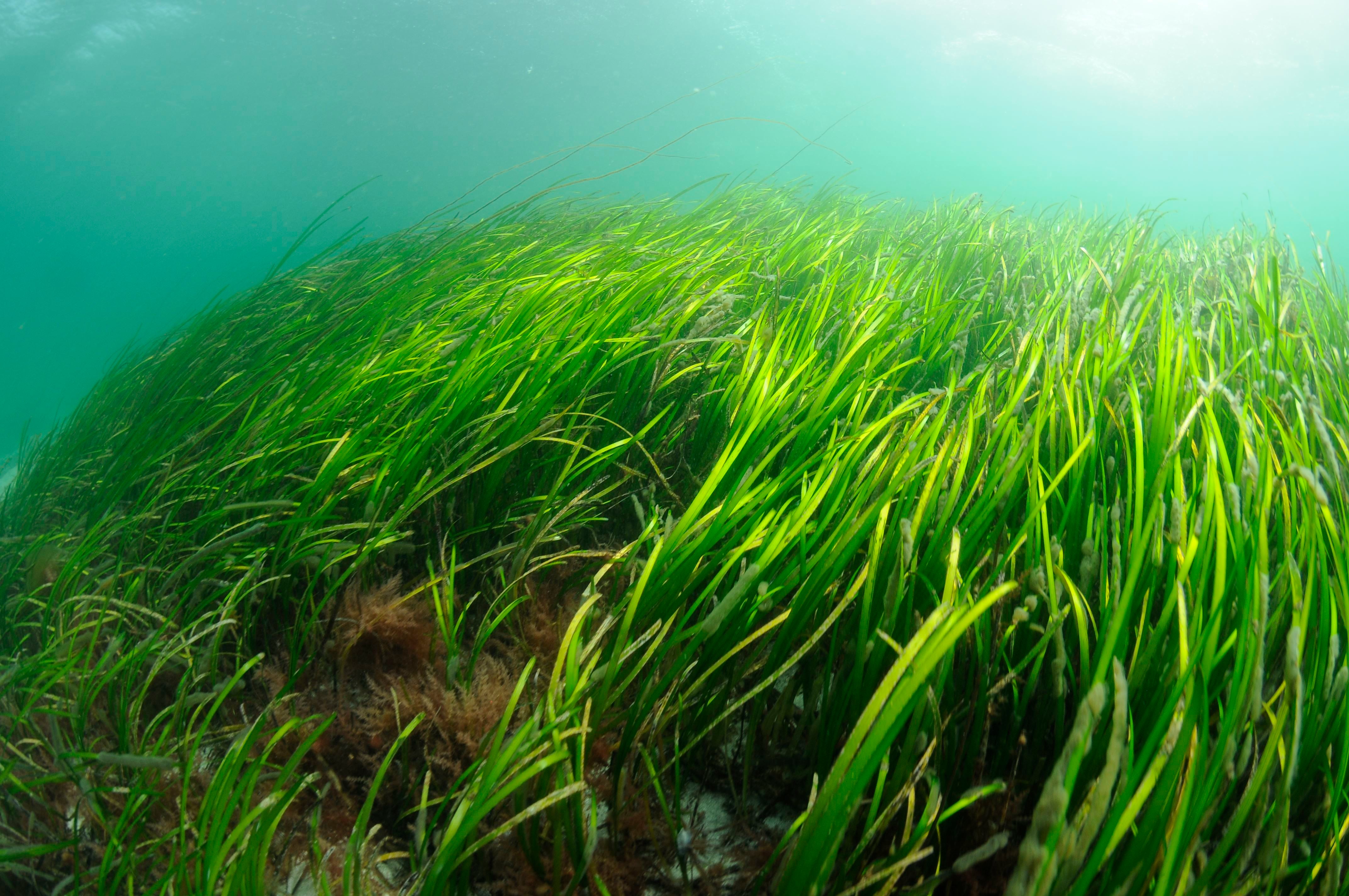Thousands of ‘wonderplant’ seeds to be planted under the sea to tackle climate change
Clothing brand Seasalt is partnering with Cornwall Wildlife Trust on the pioneering seagrass restoration project, reports Aisha Rimi


Thousands of seagrass seeds are to be planted under the sea off Cornwall as part of a new project to fight climate change.
The Seeding Change Together project aims to restore intertidal seagrass found in the Fal Estuary.
Seagrass can absorb and store carbon dioxide, as well as provide essential habitat for sea creatures. The Cornwall Wildlife Trust (CWT) believes restoring it can help tackle the climate crisis.
Using technology never previously trialled in Cornwall before, marine experts will test out restoration methods that can be scaled up in the fight against climate change.
The project will take place over three years at the Fal Ruan nature reserve, and will involve on-site and aerial surveys, as well as water quality tests, to better understand the environmental conditions affecting the seagrass beds.
Analysing the “wonderplant” will help understand the best conditions for growing it, the CWT said.
Volunteers will be planting thousands of seeds thanks to funding from clothing firm Seasalt.
The CWT will survey and test the water to “understand the environmental conditions affecting the seagrass beds”.
The project could also help identify additional locations for seagrass restoration in the River Fal.
Matt Slater, CWT marine conservation officer, said: “Many people don’t realise we have seagrass in our UK waters and, sadly, it doesn’t get the recognition it deserves.
“But these underwater meadows are sometimes called the lungs of the sea because of their incredible ability to store massive amounts of carbon.”
Earlier this year, thousands of seed bags were place in Plymouth Sound National Marine Park in England’s latest seagrass planting programme.
The four-year project aims to plant a total of eight hectares of seagrass meadows to provide homes for young fish and protected species such as seahorses and stalked jellyfish, as well as crabs, sea snails, cuttlefish and pipefish.
The project is also working to protect existing seagrass meadows by helping people limit their impacts on these fragile ecosystems.
Speaking about the project, Paul Barnard, service director for strategic planning and infrastructure at Plymouth City Council, said: “By working together, we can raise awareness about the importance of seagrass, reduce the impact on these sensitive habitats and encourage both local communities and visitors to help look after our ‘blue’ environment for the future.”
Join our commenting forum
Join thought-provoking conversations, follow other Independent readers and see their replies
Comments
Bookmark popover
Removed from bookmarks